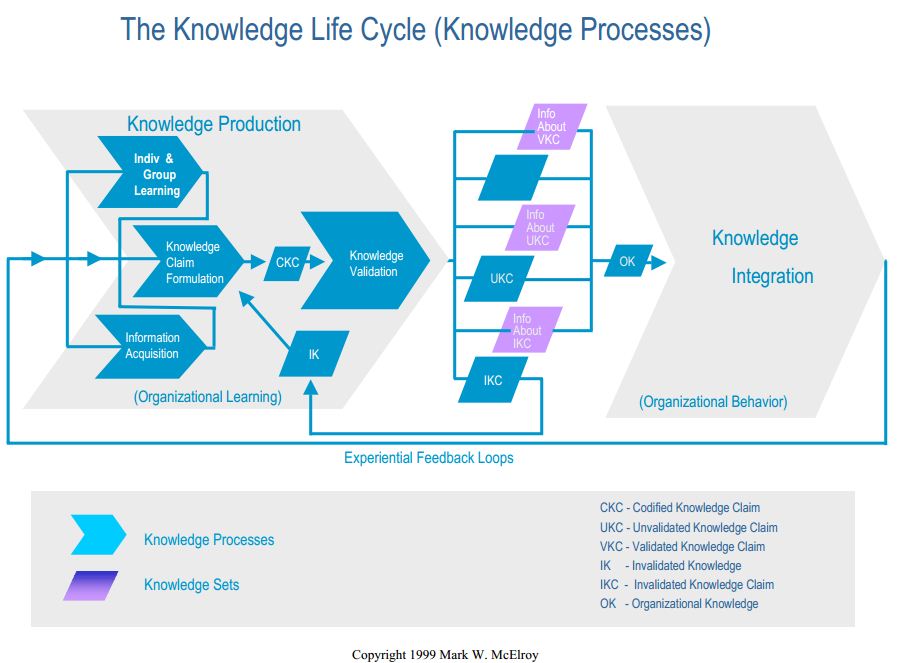Knowledge lifecycle

Definition
Knowledge lifecycle is A model describing the production of knowledge, its validation, the integration of new knowledge into the organization's knowledge base, and the feedback of this new knowledge into the production, thus closing the cycle
Summary
One paragraph.
Description
The concept of a knowledge lifecycle is one of the central points in what is often referred to as "the second generation of KM", it's main proponent being "The New Knowledge Management" (McElroy and Firestone [1]). In contrast to the first generation, which concentrated on the organization and distribution of already existing knowledge, the second generation of KM is concerned with knowledge production, the creation of new knowledge.
The basic idea of the knowledge lifecycle according to The New KM is Karl Popper's fallibilism doctrine, which states that any truth or theory cannot be proven by verifying its Aussagen, since humans a re fallible and can never know the truth with certainty. Thereby, a theory can only be hold valid as long as it is not disproved by experiment or experience, which is termed falsification. The implication for the knowledge lifecycle is that knowledge production by individual/organizational learning or knowledge acquired externally will lead to the formulation of a knowledge claim, which undergoes a process of organizational validation. If the knowledge is valid (i.e., not falsified), it is integrated into the organization's operating environment, and fed back into the knowledge production processes.
References
[1] McElroy, Mark W. The new knowledge management. Complexity, learning, and sustainable innovation. Boston, MA: KMCI Press, Butterworth-Heinemann, 2003. ISBN 0-7506-7608-6


